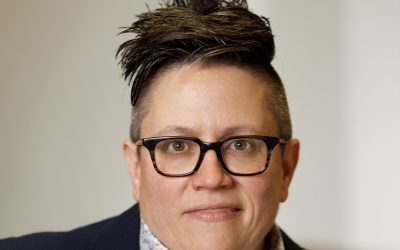“I love teaching and working with students on their research projects. This is the reason I work in a small liberal arts college.”
February 2023 – Drew University’s Carlos Yordan, associate professor of International Relations and director of the New York City Semester on the United Nations, joined us for our Focus on Faculty series, where we highlight the many accomplishments, research, and scholarship of Drew’s incredible faculty members.
“I love teaching and working with students on their research projects,” said Yordan when asked his greatest achievement as an educator. “This is the reason I work in a small liberal arts college. And this in of itself is a professional achievement.”
Yordan’s scholarship is far reaching—read on to learn (a lot) more about Drew’s New York Semester on the United Nations, text mining, and four solid pointers for students looking to enter the world of political science or international relations.
Why is Drew’s New York Semester on the UN program beneficial?
Founded in 1962, Drew’s New York Semester on the United Nations is one of Drew’s oldest off-campus programs. During the fall semesters, 20 students get the opportunity to travel to New York City twice each week and learn first hand the UN’s history, politics, and policies. While I lecture on many topics, students usually have the opportunity to attend meetings at the UN headquarters and each week students also interact with two or three guest speakers who work for the UN Secretariat, diplomatic missions, think tanks, or non-governmental advocacy groups affiliated with the UN. This is an experiential learning opportunity like no other and it is a great example of Drew’s liberal arts education program in action.
I have been directing this program for more than a decade now and every fall I am as nervous and excited as I was when I started teaching the course. Every semester, we have the opportunity to meet new speakers and attend different events and meetings. So no semester is ever the same. There have been so many memorable moments; from meeting the former director of the International Atomic Energy Agency, Yukiya Amano to attending a small event where Mary Robinson, the former Irish president and High Commissioner of Human Rights, spoke on climate change. We also had the opportunity to visit multiple diplomatic missions, the headquarters of international non-governmental organizations, and the offices of other philanthropic organizations. These opportunities help students learn how multiple actors are trying to address the planet’s biggest challenges and they also provide them an opportunity to network with people who work in the field of international affairs.
These networking opportunities have helped many of our students attain internship opportunities. Some of our students have also used this academic experience to land jobs at the UN or with organizations affiliated with this body. In fact, in the last few years, I have been inviting more Drew alums to my UN classroom. Many of them were my students, and today they are not only lecturing on their areas of expertise, but are also providing current students with advice on how they can pursue their professional aspirations once they graduate from Drew. In many ways, Drew alums are an important source of inspiration for many of our current students.
Any advice you would like to share with students heading into the world of political science and/or international relations?
I can think of four things. First, students should pursue their passions. While getting a job is important, students should study what they like. Regardless of the subject area, our courses will teach them valuable analytic and communication skills that are in high demand in the “real” world. Second, off-campus programs, whether based in New York City or taught in another part of the world, are important opportunities that will teach students how to navigate a very diverse world. Third, every student should learn another language as this will allow them to learn about other cultures and ways of life. Finally, all students should take various courses in data science or digital humanities and they should also learn coding in one computer language before graduating from Drew. Artificial intelligence is not a fad and students need to be able to understand both these technologies’ unbounded potential and their unintended consequences.
Can you explain text mining? Why are these methodologies important in deciphering political interests and policies?
Texts are ubiquitous. News stories, speeches, social media posts, political debates, and so forth provide information that can help us test different theories or generate new hypotheses about a myriad of issues. The challenge is to find a way to access these texts and structure them in ways that they can be analyzed systematically.
I use different computational-assisted methodologies to analyze different collections of texts. At this time, I am analyzing the statements delivered by world leaders at the UN General Assembly’s annual General Debate as well as diplomats’ speeches given at the UN Security Council to better understand how their opinion of terrorism has evolved since the 1970’s. I’m also investigating Donald Trump’s tweets to make sense of the main topics that animated his 2020 presidential campaign. This research area can help us better understand individuals’ opinions and preferences. In addition, I am interested in how political organizations use Twitter to communicate their goals and to shape public opinion.
Text mining or computational text analysis is a rapidly expanding area of research and I am happy that I started to study these methodologies in 2016. Thanks to two grants from Drew Humanities Summer Institute, I had a chance to delve more deeply into ongoing academic and ethical debates about text mining. I worked closely with four students on these projects and given what I have learned, I am hoping to develop a new course in the near future that will teach students how to use the R programming language to collect, structure, and analyze different types of texts.



